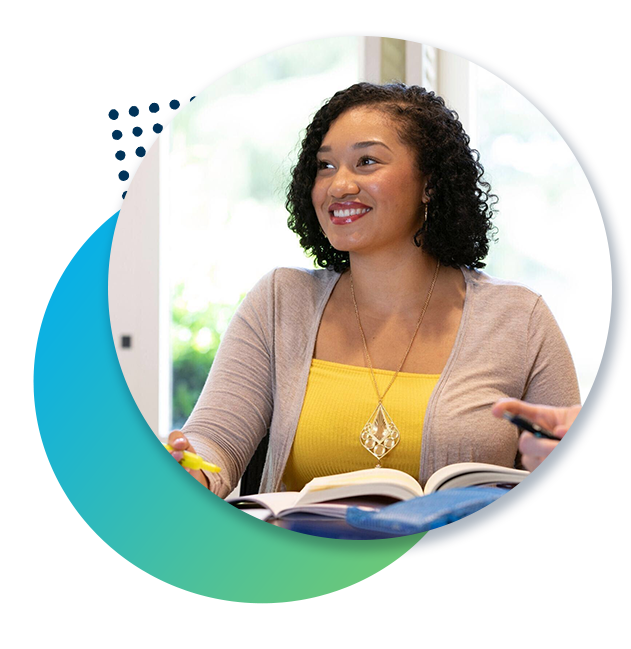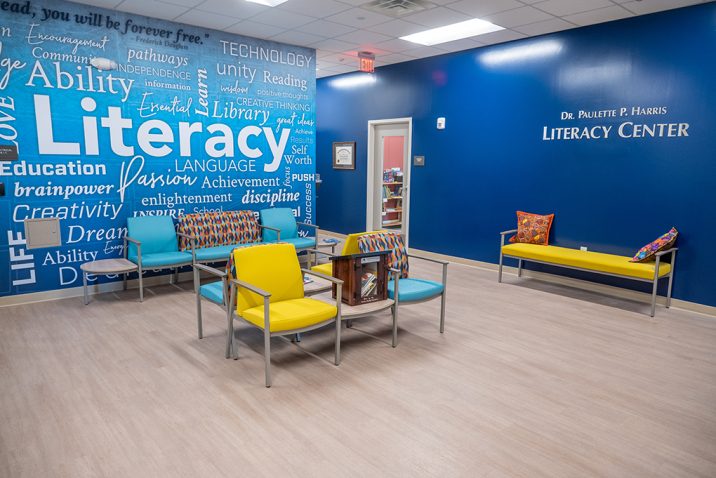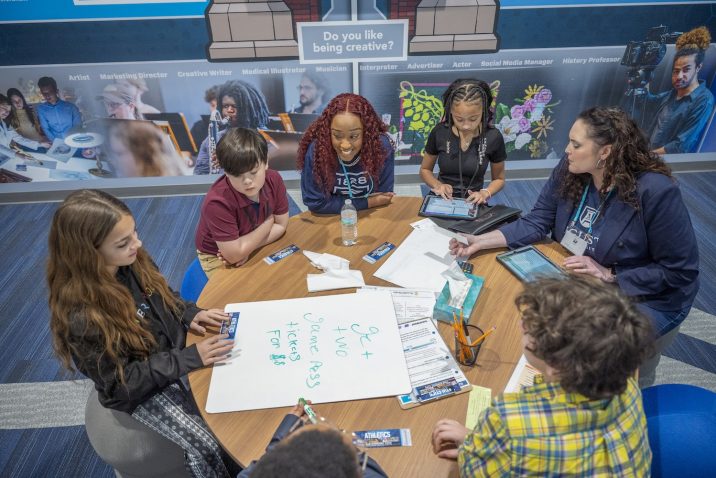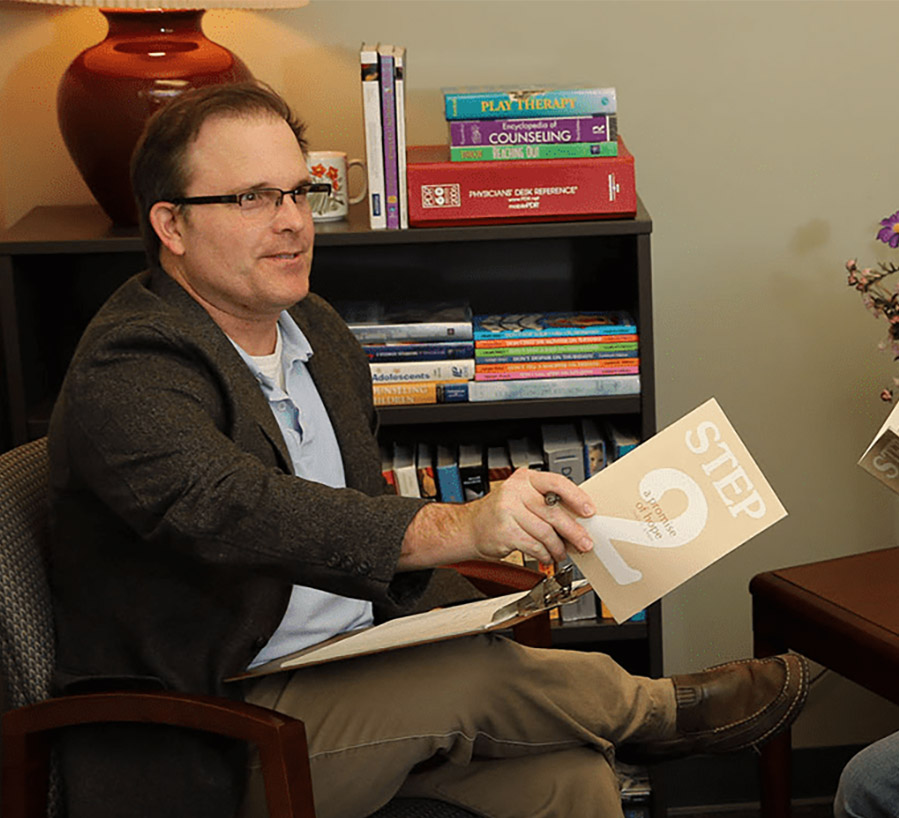Counselor Education
With a Master of Education in Counselor Education degree, you’ll be prepared to be a counselor in a school or clinical mental health setting.
The program allows you to choose from two concentrations. The School Counseling concentration prepares you for a career as a certified school counselor, while the Clinical Mental Health Counseling concentration prepares you to become a Licensed Professional Counselor.
Both concentrations are designed for working professionals, with classes primarily offered during evening hours.
Counselor Education is for you if you consider yourself
Life-Changing
Life-Saving
Education
Want to learn more about the Counselor Education program at Augusta University?
Request InfoWhat You'll Study
Coursework
Students in Augusta University’s Master of Education with a major in Counselor Education program will complete 60 credit hours of coursework, including internships in applicable concentration settings. Both concentrations are accredited by the Council for the Accreditation of Counseling and Related Educational Programs (CACREP).
The program must be completed within seven years.
Curriculum | Admissions Criteria | Tuition and Fees | Application Deadlines
Focal Points
Concentrations
Clinical Mental Health Counseling
Clinical Mental Health CounselingSchool Counseling
School Counseling



EXPLORE. EXCEL. EXPAND.
Graduate School Advantage
Augusta University's graduate programs are among the best in the nation – and the world – and our graduate students are our most valuable assets. To ensure that our students earn more than a degree, the Graduate School offers a range of opportunities so they can develop the leadership, communication and personal skills needed for a rewarding life and academic, research or professional career.
See what the Graduate School has to offer »
About the Graduate SchoolExperience-based Education
Outside the Classroom
Both concentrations are designed for working professionals, with on-campus classes primarily offered during evening hours.
Graduate Assistantships are available each semester for qualified students and provide not only financial support but also opportunities for additional experience and learning.
Students looking for opportunities to volunteer in the community have several locations to choose from, including Augusta University’s Literacy Center, which provides Augusta-area children, adolescents and adults with literacy-related educational experiences.
Two Concentrations
With concentrations for school counselors or clinical mental health counselors, students are able to choose the career path that excites them.
Career-Friendly
With most classes in the evenings or on the weekend, the degree is designed to be accessible to working individuals.
Field Experience
Required internships and other field experiences expand learning and expose students to additional perspectives.
Dedicated Faculty
The supportive faculty are committed to high-impact practices that stimulate positive learning and innovative research.
Your Future
Career Options
According to the U.S. Bureau of Labor Statistics, job growth for substance abuse, behavioral disorder and mental health counselors is projected to rise much faster than average through 2031. In 2021, the median pay for mental health counselor was $48,520 per year.
Growth for school counselors is projected to rise faster than average, with median pay at $60,510 per year.
Admissions Criteria at a Glance
GPA: Minimum overall GPA of 2.5 on a 4.0 scale at the Baccalaureate level calculated on all undergraduate work attempted.
Degree Requirement: Minimum of a Bachelor’s degree or equivalent from an accredited college or university.
Transcripts: Official transcripts are required from all universities and colleges ever attended.
Standardized Test Requirements: None are required for this program.
Letters of Recommendation: Recommendations from three individuals must be submitted through the application portal.
Essay: An autobiographical essay must be submitted through the application portal.
Tuition & Fees Estimate
$2,821*
Estimated total
Full-time / In-State / Per Semester
$236
Tuition Per Hour
$675
Mandatory Fees
View Detailed Program Tuition
*Tuition & Fees listed here are for in-state students enrolling in the university for Fall 2025 semester.
Detailed Program Tuition InformationApplication Deadlines
Fall '26 Application Deadline - Clinical Mental Health Counseling
- February 15, 2026 (extended to March 1, 2026)
Fall '26 Application Deadline - School Counseling
- February 15, 2026 (extended to April 15, 2026)
Early submission of all application materials is strongly advised.
All required application materials and documents must be received in order for an application to be considered complete and before an admission decision can be made. The program does not accept applications after the application deadline; however, the program will continue to accept application materials up to 3 weeks after the application deadline.
The Student and Exchange Visitor Information System (SEVIS} Form 1-20 for F-1 student status or Form DS-2019 for Exchange Visitor (J-1) Status cannot be issued by Augusta University for enrollment in this online program per U.S. immigration regulations. Questions? Please email International & Postdoctoral Services Office at ipso@augusta.edu.

Why Augusta?
With opportunities to pursue counseling careers in either a school or a clinical mental health setting, you are always in control of your future.
Evening classes allow you to continue working while earning your degree.
The experienced faculty have relevant experience and provide a supportive environment conducive to learning and growth.

Harris Literacy Center receives Georgia Reads Community Award
Harris Literacy Center receives Georgia Reads Community Award


